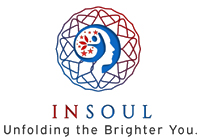What is Post-traumatic Stress Disorder (PTSD)?
Post-traumatic stress disorder is a set of reactions that can develop in people who have been through a traumatic event. A traumatic event is something that threatened their safety or life, or that of the people around them. This event may have led to feelings of intense fear, helplessness or horror.
After witnessing or experiencing a traumatic event, it’s normal for people to have stress-related reactions. These reactions include fear, sadness, and guilt. It’s also common for people to have bad memories of an event. These reactions are part of the mental healing process. But sometimes a traumatic event can be so distressing that reactions don’t go away and may disrupt a person’s daily life. In this case, they may have post-traumatic stress disorder.
What Sort of Events Can Cause PTSD?
Post-traumatic stress disorder can occur after someone goes through or sees a life-threatening incident such as:
- Child sexual or physical abuse
- Adult sexual or physical assault
- Serious accident
- Combat or military exposure
- Natural disaster
- Armed robbery
Other life-changing events such as divorce, expected loss of a family member or loss of job are very distressing and can cause mental health issues, but these are not events that lead to PSTD. A person’s reaction to a traumatic incident varies depending on the type of trauma, other stressors going on in their life at that time, available support, their personality, and coping resources.
How Do I Know if I have PTSD?
People with PTSD often experience feelings of extreme fear or panic which are similar to what they felt during the traumatic event. A person may be diagnosed with PTSD if they have a number of symptoms for a month or more. The symptoms usually lead to suffering and distress, and interfere with a person’s ability to work, study, and enjoy the things in life that used to make them happy.
PTSD has four main types of symptoms listed below:
-
Reliving the event. Memories of the trauma can come back at anytime. The person may have nightmares or feel like they’re going through it again. This is called a flashback. They might have intense physical reactions, like sweating, panic, and a racing heart. Sometimes there is a trigger: a sound or sight that causes them to re-live the event.
-
Avoiding situations that act as reminders of the event. They may try to avoid situations or people that bring back memories of the event. For example a person who was robbed in a gaming room might avoid returning to hotels and casinos.
-
Feeling numb. They may find it hard to express feelings in relation to the event and feel emotionally flat or numb. They might also lose interest in the activities they used to enjoy or feel distant from loved ones.
-
Feeling on edge. Acting jittery and on the lookout for danger. They might suddenly become angry or irritable and have a hard-time sleeping and concentrating. This is also known as hyperarousal.
How is PTSD Treated?
The two main types of treatments are psychotherapy and medication. Sometimes psychotherapy and medication are combined for the most effective treatment. The psychotherapy is called cognitive behavioural therapy (CBT) and it consists of something called exposure therapy. Exposure therapy involves gradual exposure to the feared context without any danger, in order to help people overcome their anxiety.
The medication used is called Selective Serotonin Reu-ptake Inhibitors (SSRIs). Both CBT and SSRI’s have the best-evidence for treating post-traumatic shock syndrome. Researchers have found that people who get these treatments get better and stay better in the long run, compared to those who received other kinds of treatment or no treatment at all.
Why Should I Seek Help for PTSD?
It’s common for people with PTSD to want to avoid discussing the past, but untreated PTSD can harm your relationships, your ability to work or study, and your quality of life. PTSD can change your family life. You may feel distant and numb from loved ones, or feel angry or violent towards others. Getting help for PTSD can improve your relationships and family life. PTSD can have a negative impact on your health. PTSD Symptoms can make other physical health problems worse, and studies have shown a link between heart trouble and PTSD. Symptoms of PTSD can get worse over time. Early treatment is better. Finding out what treatments work and where to look for help can make it easier for you to move forward and get better outcomes.
Taking Action
It’s important to seek help right away if you or a loved one has PTSD. Recognise that PTSD is not a sign of weakness, and the only way to overcome it is to confront your memories and emotions with the help from a professional who is used to dealing with these kinds of problems. You don’t have to suffer alone. Getting back to a happier life is much easier with the guidance and support of an experienced therapist.
